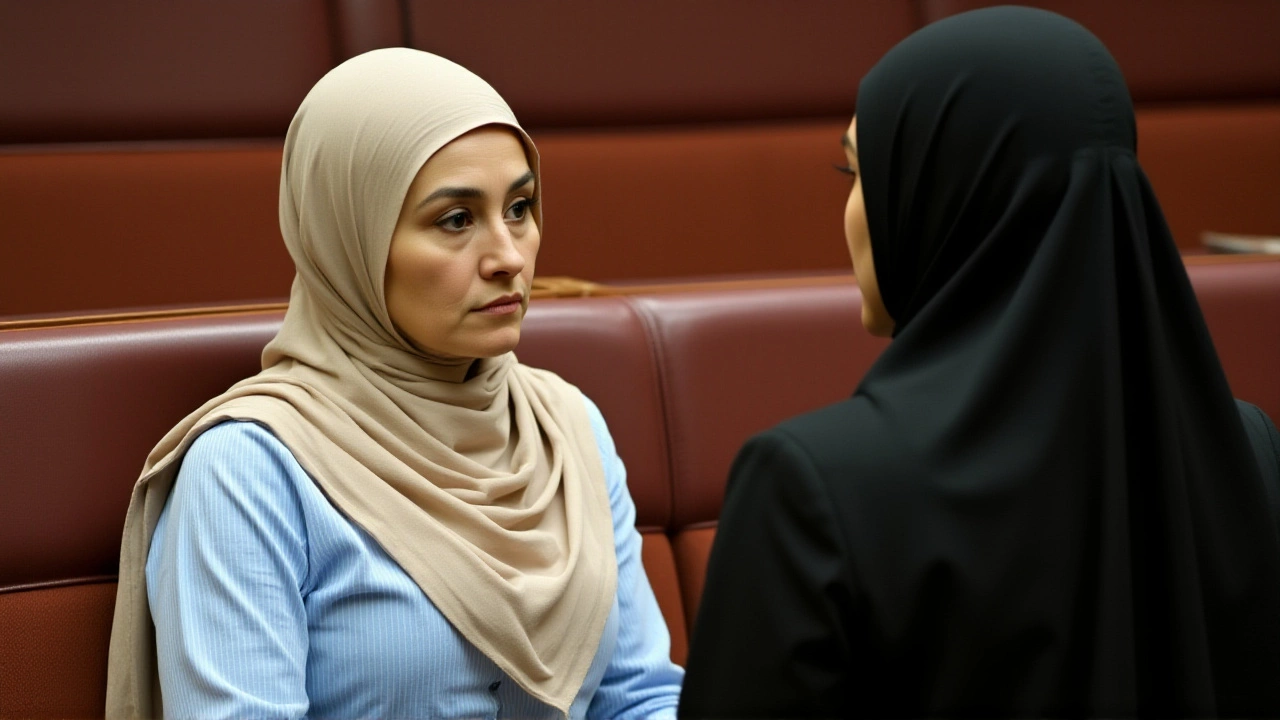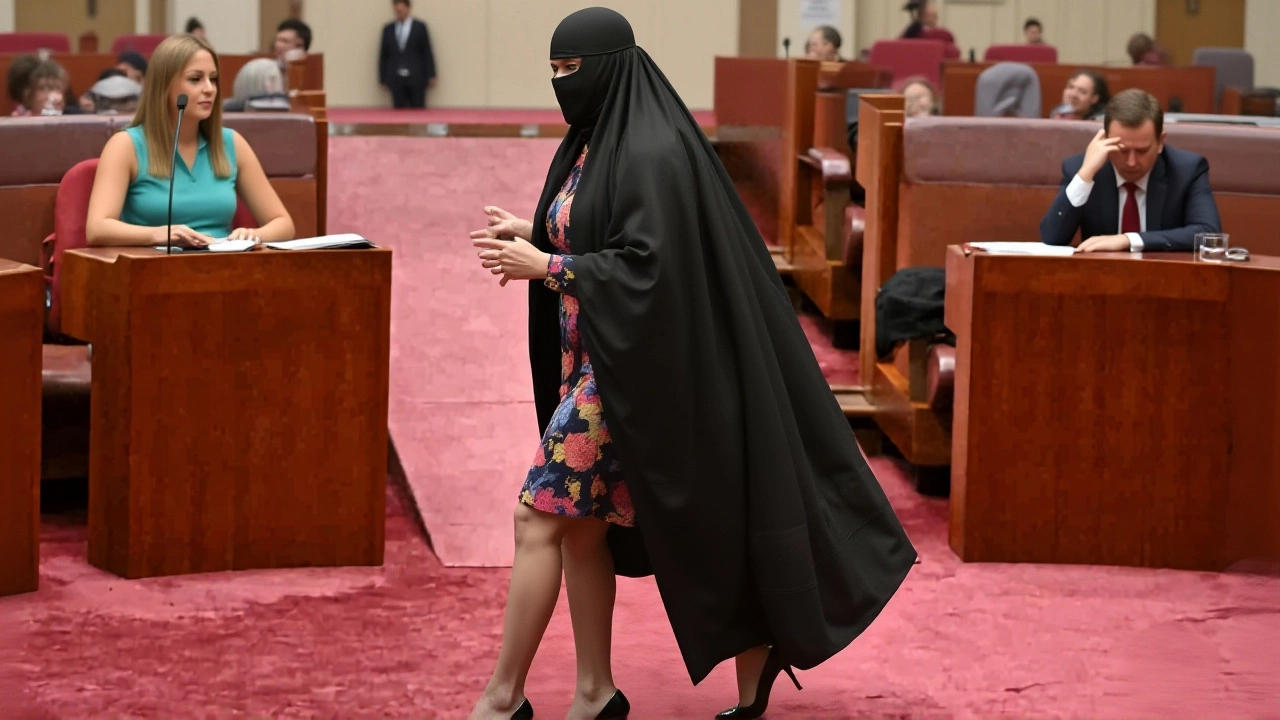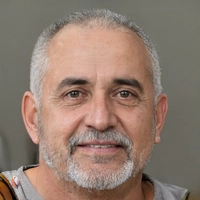
When Pauline Hanson walked into the Australian Senate chamber in Canberra on Monday, November 24, 2025, draped head-to-toe in a burqa, she didn’t expect to be suspended. But by Tuesday, November 25, after refusing to apologize, the full Senate voted to bar her from the chamber for seven consecutive sitting days — the harshest penalty handed to a senator since 1979. It wasn’t just about the garment. It was about what the gesture symbolized: a deliberate, public mockery of a faith practiced by nearly a million Australians.
What Happened in the Chamber?
Hanson, the 71-year-old leader of Pauline Hanson's One Nation, entered the Senate wearing the full Islamic veil to protest the chamber’s refusal to debate her proposed bill banning full-face coverings in public spaces. She had done something similar in 2017 — and back then, no one punished her. This time, things were different. Senators didn’t just see a stunt. They saw a message: that Islam, and the women who wear the burqa, are not worthy of dignity in public life. The initial reaction was swift. On Monday, the Senate suspended her for the remainder of the day. But without an apology, the motion escalated. On Tuesday, Penny Wong, the Malaysian-born government leader in the Senate and a non-Muslim, moved a formal censure motion. "By wearing the burqa, Sen. Hanson has mocked and vilified an entire faith," Wong said, her voice steady but sharp. "It’s not protest. It’s performance. And it makes Australia weaker. It hurts children in schoolyards. It tells people they don’t belong." The vote passed 41 to 12. No one from Pauline Hanson's One Nation spoke in her defense.Why This Time, Not in 2017?
The 2017 incident drew outrage, but it was dismissed as a crude publicity stunt. This time, the political climate had shifted. The 2021 Australian Census recorded 813,000 Muslims — 3.2% of the population — but Wong’s reference to "nearly one million" likely included recent arrivals and children born since then. That’s not a small number. It’s a community with mosques, schools, and families. And now, their faith was being parodied on the floor of Parliament. Wong’s speech resonated beyond the chamber. Community leaders in Sydney, Melbourne, and Brisbane echoed her sentiment. "This isn’t about clothing," said Dr. Amina Farah, a Melbourne-based sociologist. "It’s about whether a senator believes Muslims are human enough to be seen, not spectacle." The Senate’s standing orders allow for suspension for breaches of decorum — but rarely this long. The last time a senator got seven days was in 1979, when a member physically threatened another. Hanson’s punishment is symbolic, but potent. It signals that Parliament won’t tolerate performative bigotry disguised as protest.Who’s Affected — And Who’s Watching?
The suspension means Hanson will miss seven full sitting days. With the Senate adjourning on Thursday, November 27, 2025, she won’t return until February 2026. That’s not just a break from voting — it’s a break from influencing policy, from speaking on immigration, from pushing her agenda. For a politician who thrives on controversy, it’s a blow. But the fallout extends beyond her. Barnaby Joyce, the former Deputy Prime Minister and leader of the National Party, dined with Hanson at her office on Tuesday night. He didn’t comment on the suspension, but told reporters he’d "make a decision on his future" by week’s end. His potential return to politics — possibly aligned with One Nation — has sparked speculation that Australia’s right-wing coalition could reconfigure in 2026. Meanwhile, Australia’s Muslim communities are bracing. Mosques in Adelaide and Perth reported increased hate messages after the incident. The Australian Human Rights Commission has signaled it may launch a review into whether the event constitutes racial vilification under federal law.
What’s Next for Australia?
Hanson’s bill remains dead. It never had enough support. But now, the debate has shifted. It’s no longer about whether a burqa should be banned. It’s about whether Parliament has a responsibility to protect dignity — even for those it disagrees with. Legal experts point out that Australia has no national ban on religious clothing. The few state-level restrictions (like in Victoria’s public sector) are narrowly drawn and tied to security, not faith. Hanson’s proposal, which would criminalize wearing a burqa in parks, libraries, or buses, would likely be struck down by the High Court as violating the Constitution’s implied freedom of religion. Still, the symbolism lingers. The Senate didn’t just punish Hanson. It drew a line. And that line matters — especially as global far-right movements grow bolder.What This Means for Australian Democracy
Democracy doesn’t thrive on outrage. It thrives on restraint. On listening. On treating even your fiercest opponents with basic respect. Hanson’s actions challenged that. And the Senate responded — not with silence, not with more noise — but with a measured, historic rebuke. It’s not about silencing dissent. It’s about saying: this is not how we do things here.Frequently Asked Questions
Why was Pauline Hanson suspended for seven days when she wasn’t punished in 2017?
In 2017, her burqa protest was seen as a provocative stunt but not a serious breach of decorum. By 2025, the political context had changed: Islamophobia was increasingly recognized as a systemic threat, and Senate leaders, particularly Penny Wong, framed the act as a deliberate vilification of a minority faith. The Senate’s 2025 censure motion explicitly cited the harm to social cohesion, making this a matter of institutional integrity, not just procedure.
How many Australians practice Islam, and why does that number matter here?
The 2021 Australian Census recorded 813,000 Muslims, or 3.2% of the population. Senator Penny Wong referenced nearly one million, likely including recent migrants and children born since the census. That’s a significant minority — larger than the Jewish, Buddhist, or Hindu communities. Mocking their religious practice in Parliament isn’t just offensive; it risks alienating a community that contributes to Australia’s economy, culture, and civic life.
Can Pauline Hanson still vote or speak during her suspension?
No. The suspension bars her from entering the Senate chamber, participating in debates, voting, or even attending committee meetings during the seven consecutive sitting days. She retains her salary and title, but loses all parliamentary privileges. The suspension only counts when the Senate is sitting — so she won’t return until February 2026, even though the calendar break is only a few weeks.
Is wearing a burqa illegal in Australia?
No. There is no federal or state law banning the burqa or any religious garment in public. Some states restrict face coverings in specific contexts — like identification checks or courtrooms — but never for religious reasons. Hanson’s proposed ban would have been unprecedented and likely unconstitutional. The High Court has consistently upheld religious freedom as an implied right under Australia’s Constitution.
Why did Penny Wong, who isn’t Muslim, speak so forcefully against Hanson?
Wong, as government leader in the Senate, represents the institution’s integrity — not her personal faith. She emphasized that Hanson’s act wasn’t about policy disagreement; it was about dehumanizing a minority group. As a woman of Malaysian heritage who faced discrimination herself, Wong framed the issue as one of national character: "We don’t mock people’s beliefs to score political points. We protect them."
What impact might this have on Australia’s 2026 federal election?
Hanson’s suspension may energize her base, but it risks alienating moderate voters. Polls show most Australians oppose bans on religious clothing. Meanwhile, Barnaby Joyce’s rumored alliance with One Nation could split the right-wing vote, potentially helping Labor retain power. The incident has turned Hanson from a fringe figure into a symbol — of intolerance to some, of resistance to others. Either way, it’s reshaping the political landscape.





